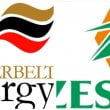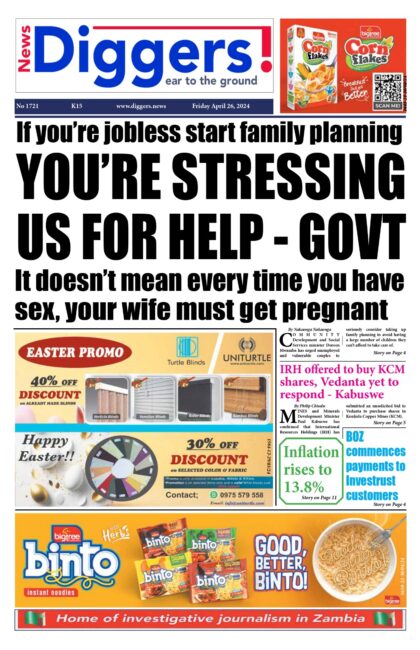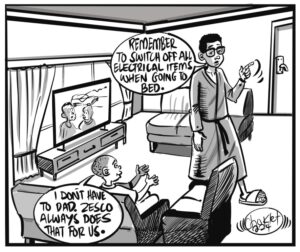THE Copperbelt Energy Corporation (CEC) has sued Zesco Limited and its director strategy and corporate affairs, Patrick Mwila, in the Lusaka High Court claiming damages for accusing it of denying access to its meters and reporting inaccurate metering data, thereby defrauding Zesco of US$67.2 million.
CEC has also sued Zambia Daily Mail Limited, stating that Mwila was quoted in that newspaper accusing CEC of lacking transparency.
It now wants an order of injunction to restrain the defendants whether by themselves, their servants, agents, officers, or otherwise from making and publishing any further defamatory statements against it in their public pronouncements.
CEC is further claiming compensatory and exemplary damages against the defendants, as well as, interest and costs of and incidental to the action.
In a statement of claim filed in the Lusaka High Court, August 24, CEC explained that it was a licensed independent power generating, transmission, distribution and supply company whose core business was to supply electricity to the Copperbelt Province and also some parts of the Democratic Republic of Congo.
It added that it was also a public company owned by a diverse shareholder universe totalling 4,632 shareholders who comprise local companies, pension funds, individuals, professional bodies, faith-based organisations, co-operatives and foreign investors.
CEC stated that it was incorporated in 1997 following the privatization of the Power Division of the Zambia Consolidated Copper Mines, adding that from the date of its incorporation, it had invested heavily in the development, maintenance and expansion of its infrastructure and earned its good corporate image and reputation.
“Further CEC, is an active and respected member of the Southern Africa Power Pool (SAPP) the regional power pool and is listed on the Lusaka Securities Exchange (LuSE) and as such is held to a very high level of accountability in the carrying out of its business and the protection of various investors. It is highly distinguished and prior to the defendants’ false and malicious statements, it was highly reputable both locally and internationally and was held in very high esteem by the public,” read the claim.
It explained that Zesco and CEC were parties to a Bulk Power Supply Agreement (BSA) which expired on March 31, 2020, adding that under the BSA, Zesco was supplying electricity to it in bulk which it (CEC) was distributing to its customers on the Copperbelt.
CEC stated that on June 15, 2020, the Zambia Daily Mail newspaper ran a story which appeared on pages one and seven of the edition under the heading: ‘CEC deal costs ZESCO $67m’.
“At page one, the first defendant (Mwila) is quoted to have made the following defamatory statement: ‘Zesco now accuses CEC of lacking transparency as it did not allow access to its meters or metering data to show the true consumption by the mines that showed the true peak on the Zesco system. As such, CEC enjoyed the additional benefit from what is known as ‘simultaneous maximum demand’. This is a situation which occurs as a result of the mining companies reaching their maximum demand consumption at different times to the maximum demand readings at the Zesco bulk supply points’,” read the claim.
“At page seven the story continues… ‘He said this led to a loss of between 50 and 100 megawatts per month for Zesco. This amounted to approximately US$2.3 million to US$5.6 million monthly or up to US$67.2 million annually, he said’.”
CEC stated that in their natural and ordinary meaning, the said words meant and were understood to mean that Zesco had the right to access meters and metering data which were in the custody of CEC but CEC acted dishonestly and defrauded Zesco of US$67.2 Million by denying the it access to meters and metering data and reporting inaccurate and understated metering data.
It added that the words further meant and were understood to mean that CEC did not abide by the provisions of the BSA, but acted immorally and unethically and unjustly enriched itself to the disadvantage of Zesco.
CEC stated that as a result of the defendants’ publication of the said defamatory words, it had been seriously injured in its reputation, had been brought into public scandal, ridicule, odium and contempt and had been lowered in the esteem of right thinking members of society.
It further stated that on June 15, 2020, News Diggers Limited also ran a story captioned: ‘ZESCO Claims $200M Annual loss from BSA with CEC’.
“The story quoted Mwila to have made the following false and defamatory statement in relation to CEC, ‘No we are not going to give them the old BSA, it will never happen, that will never happen. Maybe because they think they have been oiling some people here and there they think that maybe the government is weak but there are people who are watching and nobody is going to allow that…’.”
CEC stated that the words meant and were understood to mean that CEC was unethical and corrupt and that through its officers, it had been bribing certain people known to Mwila, who have connections or authority to influence or direct Zesco to renew the BSA with it.
It added that the words further meant and were understood to mean that it conducts its business unethically and its recorded growth and expansion had not been legitimately acquired.
CEC further stated that on June 17, this year, it wrote to Mwila demanding a full and unconditional apology and a public retraction of the defamatory statement but the defendants had refused or neglected to do so.
It stated that unless restrained by the court, the defendants were likely to continue publishing defamatory statements against it.












